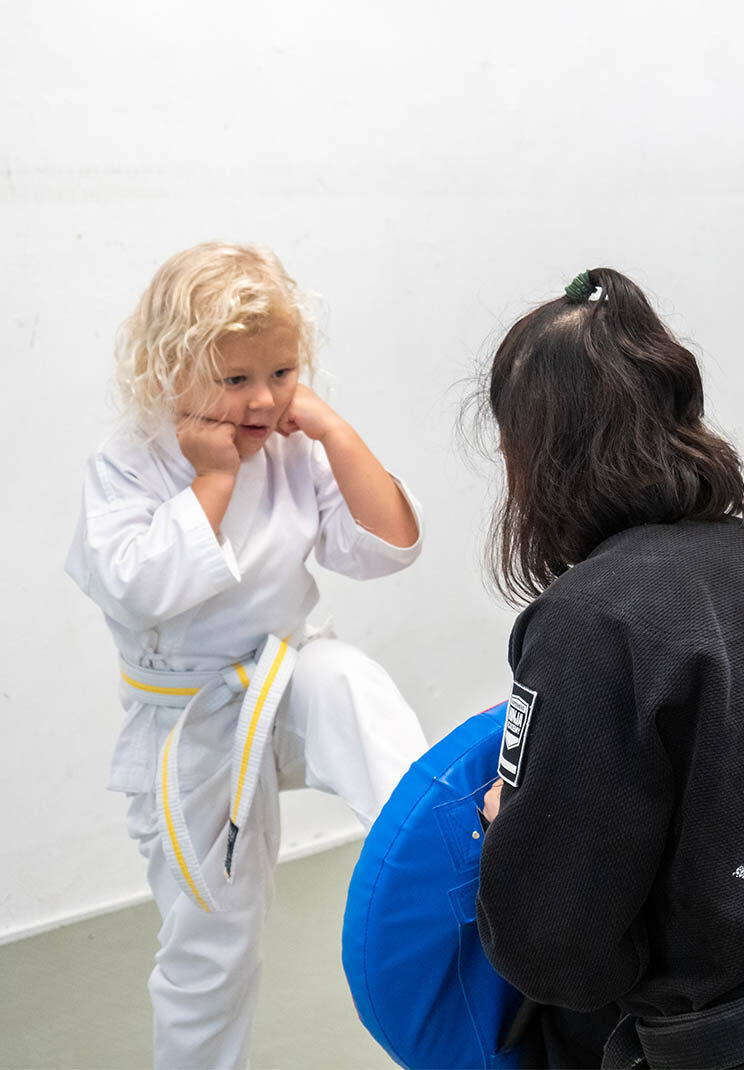
Parents’ Corner: Confidence
What is confidence?
Confidence is a feeling of belief in your abilities, skills or attributes. It is a state of mind that allows you to approach challenges with self assurance. Confidence is not something you are simply born with, it is a quality that can be developed through experience, positive self-talk, and the support of others. When you are confident, you are willing to take risks and try new things. This helps you learn new things and develop your skills.
Confidence is about changing that voice in our head that says we can’t and give it the strength, knowledge and tools to know anything is possible!
Why is it important for children to learn?
Developing confidence in children from an early age is very important for many reasons. Confidence is closely linked to self-esteem. When these qualities are abundant, children are able to face challenges and overcome them, in all areas of life.
Learning confidence helps children develop healthy social lives. Confident children will be willing to take the risk to make new friends and be vulnerable with them. Confident children are better able to regulate their emotions. If they have an argument, or feel sad, they will remember that they are able to overcome difficulty, and bounce back from bad feelings quicker than a child who does not feel confident.
Children who are confident show higher resilience in many tough situations. This applies to achieving success in school. Just like with friendships, emotions, and other situations- when learning gets difficult, the confident student persists and works through their challenges.
Increased independence is another positive side effect of confidence. When children have confidence, they feel comfortable relying on their own skills and abilities rather than waiting for others for assurance to take risks and try things.
Confidence is a very important quality for a child’s overall well being. Children with high self-esteem are less likely to experience anxiety and depression. They are more likely to be positive and excited to learn and play. Be sure to encourage confidence and self esteem, and talk about those qualities with your child.
As counter intuitive as it might feel, if your child lacks confidence, you can help them by taking a step back. You may want to push them to meet new people and into new situations.This can make them want to retreat more. Let your child find his way on his own time. This way it’s on his terms and he can feel good about his decisions.
It’s also good to share stories with them about times you felt a little anxious about a situation. This way they can feel good knowing it’s not just them.
Five conversation starters:
Having a conversation with your child is a great way to show that you care about them, and in particular that you value confidence and self-esteem. Here are some ways to start talking about confidence:
“Trying new things can be scary, but it can also be exciting. What are some new things that you would like to try?”
“Do you ever get nervous in some situations? What do you do? How do you handle it?”
“I’ve noticed you doing really well at (school/sports/creative activities). What do you think helps you be so good at that?”
“What are some things you think you are really good at? What are some things you’d like to be better at?”
“How can you get better at the things you want to improve at?”
Practical ways to help children build confidence:
A great way to build confidence is to model confidence, encourage your child, and notice when they succeed and praise their efforts. Here are some additional activities or situations where you can help build your child’s confidence:
Set goals together. Show your child that you want to improve too, and work together toward your individual goals.
Let them try things on their own to build independence.
Teach coping skills like positive self talk, (“I believe in myself,” “I’ll get it next time!”)
Model confidence in front of your child. (“I know I can do this.” “I’ve never tried this before, but I believe I can do it.”)
Let them take a risk, and try a new thing. For example, try a new sport together. Practice a new instrument, or try to make a new friend at the playground.
Recommended books
Read these with your child and talk about how confidence and self-esteem look for them.
“I am Enough” by Grace Byers
“A Bad Case of Stripes” by David Shannon
“It’s Ok to be Different” by Todd Parr
“Say Something” by Peter H. Reynolds
“Chrysanthemum” by Kevin Henkes
“What do you do with an Idea?” by Kobi Yamada
For older children:
“Boys are Amazing” by David Wilson
“The Confidence Code for Girls” by Katty Kay
Come & Experience It Yourself.

Get In Touch
How can we help to get you started?
